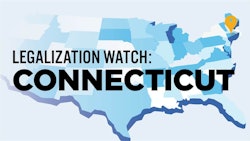
While COVID-19’s full effects on the cannabis industry remain uncertain, there are common challenges that most businesses are currently facing and there are steps companies can take to protect themselves in these uncertain times.
“We have weekly calls with our law firm leadership and a theme is uncertainty, as I’m sure it is with other businesses,” Joseph Bedwick, co-chair of Cozen O’Connor’s Cannabis Industry Team, tells Cannabis Business Times. “Everybody is doing what they can to weather the storm, and cannabis businesses are no different. They’re a regulated industry, but they are, at their heart, a business that just needs to weather the storm like any other business.”
Here, Bedwick outlines some of the broader trends he’s seeing in the market, the frequently asked questions from his clients and what the industry might look like at the end of this global pandemic.
Cannabis Business Times: What are some of the broader market trends that are unfolding in the wake of the COVID-19 outbreak?
Joseph Bedwick: As a general comment—and this is not unlike any other client in every other industry—there’s just a lot of uncertainty. I’m an M&A attorney by trade, and deals have slowed, naturally. People are not able to meet in person. They’re not able to carry on their business as easily and as frequently as they’ve done, and frankly, people aren’t as willing to invest money at this time. I had one deal where things were just put on hold because the buyer wanted to tread a little lighter. I think you see that, and that’s part of a national trend, at least in the M&A landscape.
CBT: What are the main challenges that your cannabis clients are facing right now? What are some frequently asked questions you’re getting from the industry?
JB: On the cannabis-specific side, one of the things that all dispensary clients that have come to us have been concerned about is just, is a medical marijuana dispensary going to be considered an essential business? Generally, states are delineating between essential functions and non-essential functions, which is why some of our offices are requiring their attorneys to work remotely as required by government regulation, but Cozen O’Connor is not closed. My children are doing distance learning from school. Bars are closed. Grocery stores, pharmacies and gas stations are allowed to remain open and restaurants are allowed to remain open for drive-thru and takeout. What we’ve seen by and large is medical marijuana dispensaries are falling under the essential category. That has relieved a lot of my clients, especially in California, where they have the shelter in place [order] in San Francisco in the Bay Area. In Southern California, the localities have deemed marijuana dispensaries to be essential and they can remain open. That’s been one concern by our clients and questions that we’ve talked through.
Our labor and employment attorneys on our cannabis team have counseled clients, just reminding them what their obligations and responsibilities are in the wake of having to potentially lay off employees, or if employees aren’t coming into work, how they [handle] staff and furloughing. We’ve had a lot of questions about that in the wake of the pandemic, as well.
RELATED: 10 Tips on Employment Practices for Cannabis Businesses During the COVID-19 Pandemic
CBT: How are you advising your clients to protect their businesses during this uncertain time?
JB: To protect their business, especially in this everchanging landscape that changes by the hour seemingly on what a specific state is doing, understand what your current state regulations are, not necessarily with respect to the local cannabis regulations, but what the state government is putting out with respect to businesses staying open and social distancing. What measures are you taking to protect your clientele and your employees? In the dispensary world, that’s limiting the number of people who can come into your dispensary at any given time. I was on [the phone] with a chief operating officer [and] general counsel of a client based in California [that operates] all over the country in many jurisdictions, discussing those specific issues—just making sure your employees are trained and are wearing gloves and that you’re not having an all-out rush into dispensaries.
Similar to any other hoarding, I’ve read that there’s been some rush into some dispensaries and hoarding product. You just have to make sure that you’re being safe and you’re being smart, and that you are not just having your dispensaries filled with more people than, in this climate, would be appropriate.
CBT: What are some of the potential long-lasting impacts of this outbreak on the cannabis industry, and how should businesses be preparing for these long-term effects?
JB: That’s an excellent question, and if I knew the specific answer to that, I’d tell you and I’d tell all my clients. I think we’re still operating in a great unknown. Nobody knows how long this will last. You’ve heard the clichés to just prepare for the worst, hope for the best. It could be weeks. I hope it’s not months, but it could be. So, the long-term impact, I think, is going to be directly dependent on how long it lasts and really what extent this virus has on the supply chain. There are just a whole set of unknowns there on what the ultimate impact is going to be, but it will have an impact.
CBT: How will this pandemic impact pending cannabis-related legislation, both at the federal and state level?
JB: I think an indirect casualty of all this will be, for better or worse, a [slowdown]—not an elimination or a cancellation, but a definite slowdown in the bills, whether it’s Congress not getting together [or] whether it’s everybody has focused 100% of their attention on trying these stimulus bills and trying to get this country through this pandemic. That is first and foremost in everybody’s mind, as it should be. And I think, for better or worse, passing cannabis regulations or the SAFE Banking Act are just not top on people’s minds right now, nor should they be, I think. So, I definitely think you’ll see some casualties in that realm, coupled with the fact that it’s an election year and people are focused on that. Even before the pandemic, I wasn’t sure how much was going to get done in an election year, and now with the pandemic, I think it’s going to slow down.
It’s the confluence of over the last six months, between impeachment proceedings and an election year, and now the pandemic. It’s just been a variety of blows to cannabis regulations working their way through Congress because something else has seemingly taken forefront in senators’ and congressmen and congresswomen's minds. It’s been a crazy few months.
Editor’s Note: This interview has been edited for style, length and clarity.

























